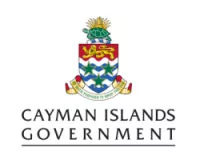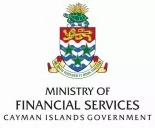The Ministry of Financial Services, Commerce and Environment has prepared 11 bills to strengthen Cayman's regulatory framework, introduce new financial services vehicles, and improve the local business environment.
The bills will be heard at the next meeting of the Legislative Assembly, which starts on Wednesday, 22 February. They are:
- the Companies Management (Amendment) (No.2) Bill, 2017;
- the Companies Amendment (No. 2) Bill, 2017;
- the Limited Liability Companies (Amendment) Bill, 2017;
- the Cayman Islands Limited Liability Partnership Bill, 2017;
- the Foundation Companies Bill, 2016;
- the Limited Liability Companies (Amendment) (No. 2) Bill, 2016;
- the Trusts (Amendment) Bill, 2016;
- the Exempted Limited Partnership (Amendment) Bill, 2016;
- the Tax Concessions (Amendment) Bill, 2016;
- the Legal Practitioners Bill, 2016; and
- the Trade and Business Licensing Amendment Bill, 2017.
A number of these bills are in preparation for the Caribbean Financial Action Task Force's (CFATF) evaluation later this year of Cayman's Anti Money-Laundering/Counter-Financing of Terrorism (AML/CFT) regime and to enhance Cayman's already strong regime of exchanging beneficial ownership information with UK authorities, when in pursuit of bad actors, so that such exchanges are performed in a more modern and efficient manner during lawful investigations.
Therefore, the Companies Management (Amendment) (No. 2) Bill, 2017; the Companies Amendment (No. 2) Bill, 2017; and the Limited Liability Companies (Amendment) Bill, 2017 seek to require companies incorporated in Cayman to establish and maintain internal beneficial ownership registers, which may be searched by a competent authority through a central access platform.
Once passed and enacted, the bills would provide the necessary framework to allow the centralised platform to be developed by 30 June 2017, in accordance with Cayman's beneficial ownership information exchange agreement with the UK.
In terms of new financial services vehicles, the Cayman Islands Limited Liability Partnership (LLP) Bill 2017 introduces a new business structure. An LLP is a partnership with separate legal personality, which provides limited liability for its partners. The creation of an LLP will offer local professional firms (such as lawyers and accountants), that usually establish themselves as general partnerships (where each partner is personally liable for all liabilities of the firm), to utilise a flexible alternative to companies and general partnerships. An LLP is designed to increase the attractiveness of the Cayman Islands to professional service providers, and to develop potential new lines of business for international clients to utilise Cayman Islands structures.
The Foundation Companies Bill, 2016 is designed to introduce a new type of company that has features that offer certain clients (especially trust and estate planners) a more satisfactory structure. Once passed and commenced, this new product will be a valuable addition to the list of legal structures available in the Cayman Islands. Essentially, The Foundation Companies Bill, 2016 seeks to bridge a gap between our current legal structures: to have a company that i) may have no shareholders and ii) may entrench its objects; which a company under our Companies Law cannot accomplish. Thus, foundation companies will open up a variety of interesting planning possibilities for clients, and it avoids the drawbacks and uncertainties of the foundation legislation implemented in recent years in competing jurisdictions.
The Limited Liability Companies (Amendment) (No. 2) Bill, 2016; the Trusts (Amendment) Bill, 2016; the Exempted Limited Partnership (Amendment) Bill, 2016; and the Tax Concessions (Amendment) Bill, 2016 are intended to delegate the authority of Cabinet to the Cabinet Office, in relation to processing tax concession certificates. The bills also create an administrative electronic process through which certificates can be issued far more efficiently.
In regards to the local business environment, the Trade and Business Licensing Amendment Bill, 2017 amends the Trade and Business Licensing Law, 2014 to clarify and extend the Trade and Business Licensing Board's functions and its relationship with the Department of Commerce and Investment (DCI).
The bill also aims to include examples of agricultural products that are exempt from the law such as jams, jellies or sauces; remove the requirement for police clearance certificates for those with an interest in listed or regulated companies; provide proper classification for pay day loans; and allow utility bills to be substituted for bank references.
The Legal Practitioners Bill, 2016 was also introduced at a previous Legislative Assembly sitting but was deferred for further public consultation with sole legal practitioners and small law firms. The bill seeks to modernise the regulation of the practice of law and includes provisions to address the Financial Action Task Force (FATF) Recommendations, which are part of the global regulatory standard for the financial services industry. In 2017, the CFATF will assess Cayman on its adherence to the FATF Recommendations.
The complete list of bills is available at the Legislative Assembly and on the Cayman Islands Gazette website.
The content of this article is intended to provide a general guide to the subject matter. Specialist advice should be sought about your specific circumstances.

